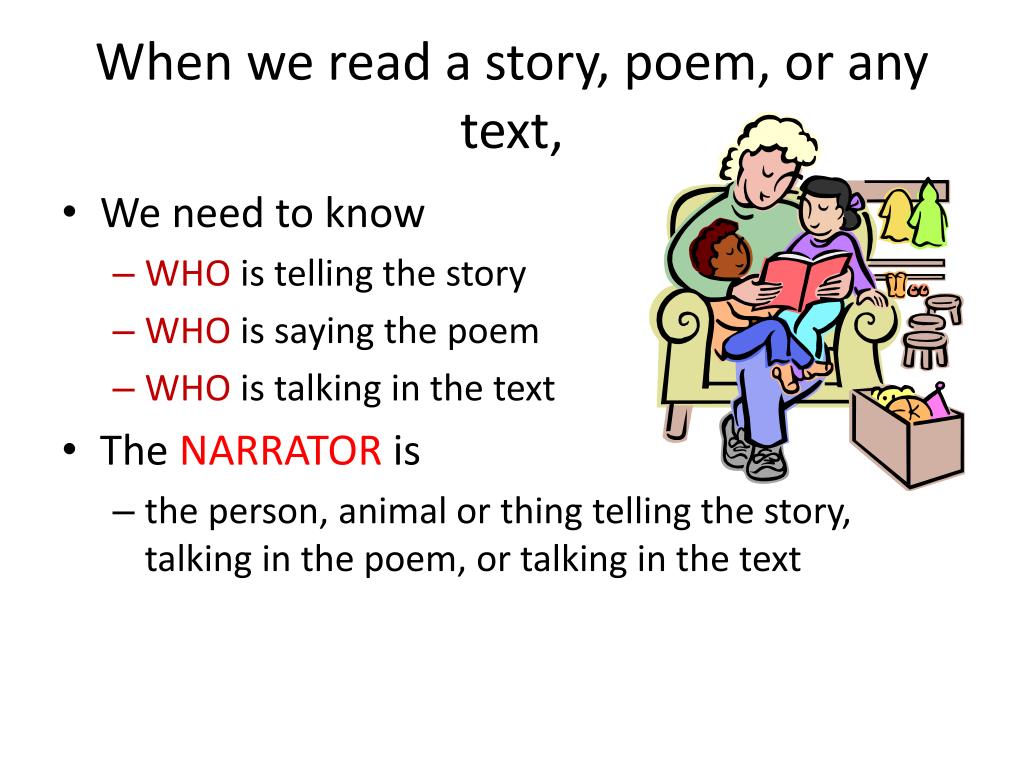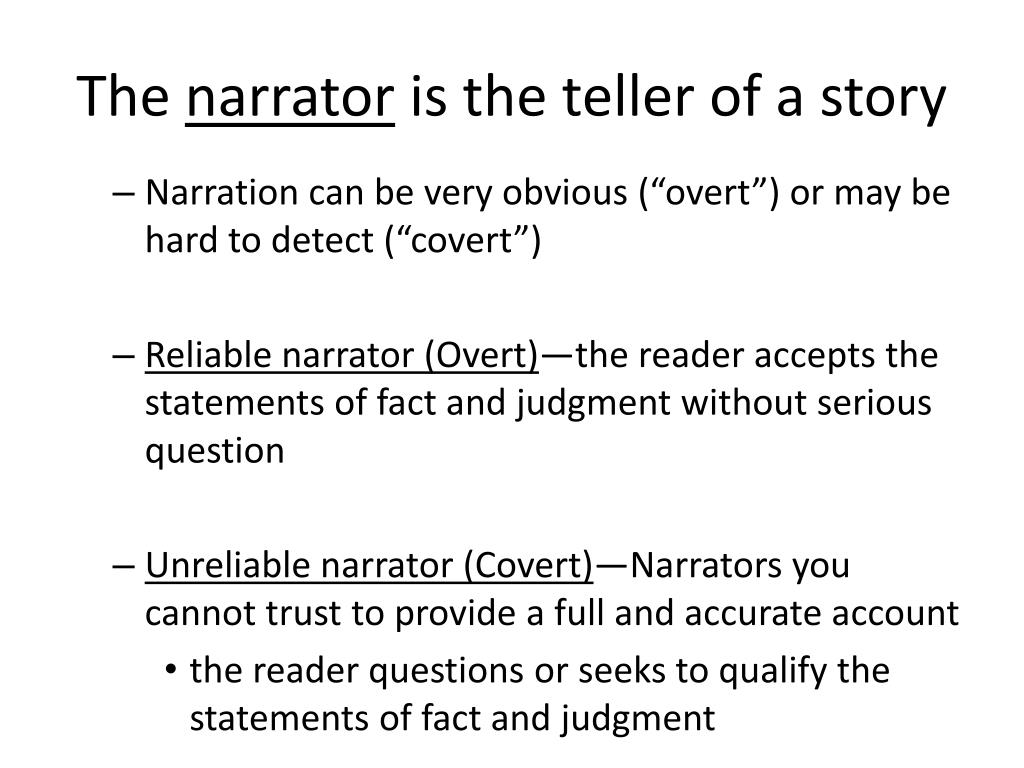

This differs significantly from the first person, in which the main character narrates the story.


As is true of all third-person storytelling, the narrator is not involved in the plot. Third-person omniscient refers to a specific narrative technique and point of view.
#RELIABLE NARRATOR DEFINITION POETRY HOW TO#
In this article, we distinguish the third-person omniscient voice from other forms of narration and give examples and tips to help you understand how to use it in your own writing.

If you want to write a short story or novel, this may be a good point of view to use. It was especially popular in the 20th century, and while enthusiasm for the style diminished in the early 21st century, demand for the technique is trending upward again. They were notoriously flaky.The use of third-person omniscient narrators is one of the oldest devices in storytelling. For a classic example of an unreliable narrator, take a look at our take on Poe's " The Tell-Tale Heart." Or really any of Poe's narrators for that matter. Although frankly, if Nick Carraway didn't show up to our Roaring '20s party, we'd be pretty peeved. When we can't trust our narrator, we call them unreliable, and we don't just mean that they bail on plans.
#RELIABLE NARRATOR DEFINITION POETRY FULL#
They're not always interested in full disclosure. Unfortunately, this means that they're not always the most trustworthy of folks. It's also super important to remember that when a first-person is narrating the story, they're somehow involved in the whole shebang. On the one hand, he can give the readers VIP access into his character's thoughts and feelings, and that's just what we hungry readers are craving, right? But on the other hand, he can't just zoom out and suddenly see things going on in multiple places at once, like a third-person narrator can. See, not so simple after all, huh? It's important to remember that the first-person narrative style can open up a lot of doors for the author, but it slams some other doors right in his face. The narrator of Joseph Conrad's most famous novel, Heart of Darkness is telling us a story he heard from a guy named Marlow, who's telling the story of yet another guy named Kurtz. Scott Fitzgerald's The Great Gatsby.īut we can get even further removed than Nick, if we really want to. She gets to give us the lowdown on the juicy dealings of the true protagonists and antagonists, all while watching from a safe distance. But there are other tricks authors use, too, like, say, a peripheral narrator.Ī peripheral narrator is a first-person narrator who's not the main character. Then he even tosses a third-person narrator our way at the end, just for kicks.įaulkner was a sneaky guy, and he found his way around the limitations of first-person narration. Oh, and speaking of Faulkner, he had three (count 'em!) first-person narrators in The Sound and the Fury, who trade off telling their stories.There's even the strange, plural first-person narration in Faulkner's " A Rose for Emily.".There's the dramatic monologue of Jean-Baptiste in Albert Camus's The Fall.There's the interior monologue of the Underground Man in Fyodor Dostoevsky's Notes from the Underground.But there are actually a ton of different ways that first-person narration can play out. Salinger's The Catcher in the Rye.įirst-person narration sounds nice and simple, right? You've got an "I" and he's doing some talking. If you're looking for some of the more famous first-person narrators in all of literature, look no further than Scout in Harper Lee's To Kill a Mockingbird, or that phony-calling phony, Holden Caulfield, in J.D. This style of narration gives us insight into a character's thoughts and feelings. First-person narrators make frequent use of the pronoun "I," because, you know, they're talking about themselves, or at the very least what's going on around them. When the story you're reading is from the point-of-view of a character in the novel (often the protagonist), you're reading first-person narration.


 0 kommentar(er)
0 kommentar(er)
